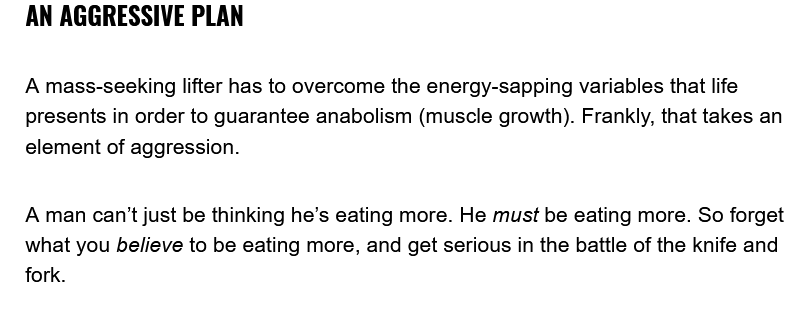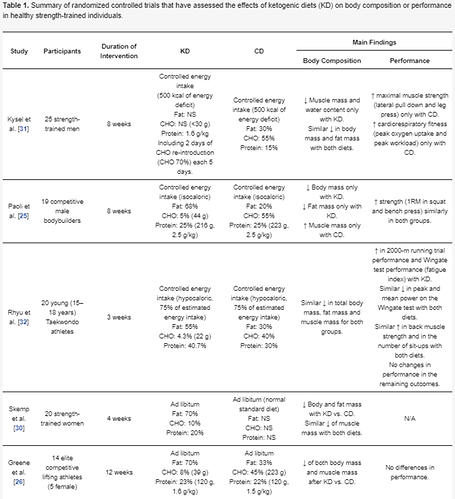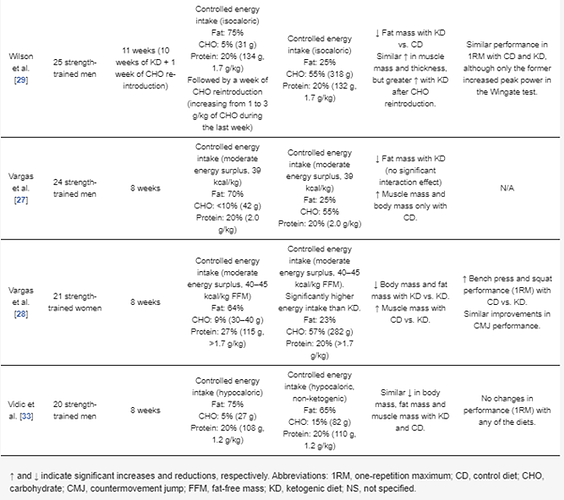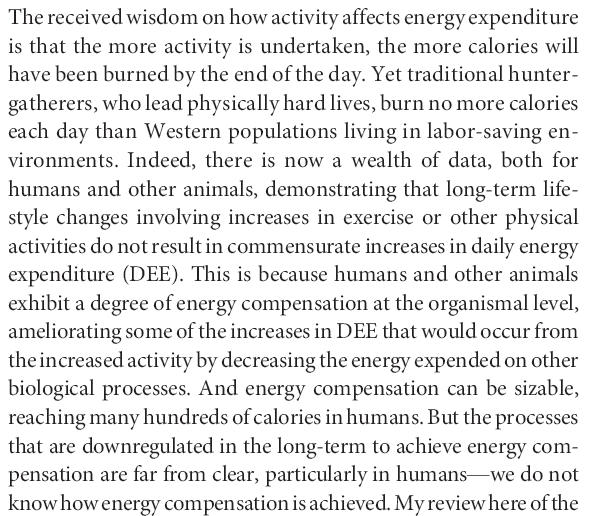I came across this paper after reading a recent article on TNation by Christian Thibaudeau titled ’ 3 Eating Strategies That Backfire Every Time’. The study cited in the article is below:
Valenzuela PL, Castillo-García A, Lucia A, Naclerio F. Effects of Combining a Ketogenic Diet with Resistance Training on Body Composition, Strength, and Mechanical Power in Trained Individuals: A Narrative Review. Nutrients. 2021; 13(9):3083.
In summary, it is a review of RCTs showing KDs have no or negligible benefits on body composition when comparing hypocaloric KDs with conventional diets with the same energy deficit. Moreover, it states some studies suggest that KD might impair resistance training-induced muscle hypertrophy, sometimes with concomitant decrements in muscle performance.
I am personally averse to jumping in to defend KD whenever it is challenged. I do suspect when it comes to the narrow topic of optimal hypertrophy, then a diet that has ‘some’ carbohydrate may trump the KD. However, clearly the article cited some studies with confounding findings, e.g. in the bodybuilder study where the KD lost LBM, their 1RM still went up. I am also mindful of Phinney and Volek’s claim that fat mass is actually made up of 15% lean tissue. Therefore, given fat cells not only shrink on a diet but also die and are replaced like any other cells, repeat DEXA scans showing reduction in fat mass should also show a corresponding loss of lean tissue (assuming this hasn’t been countered by additional lean gains).
Any thoughts on this review?







